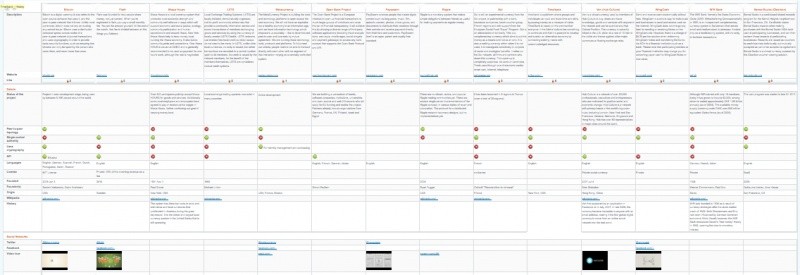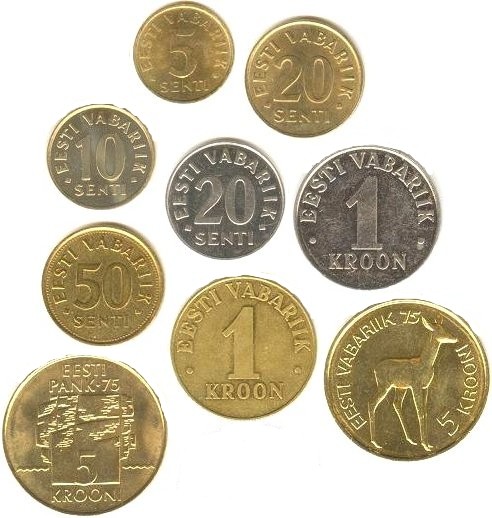Alternative currency Wikipedia the free encyclopedia
Post on: 7 Апрель, 2015 No Comment

An alternative currency (or private currency ) is any currency used as an alternative to the dominant national or multinational currency systems. They are created by an individual, corporation, or organization, they can be created by national, state, or local governments, or they can arise naturally as people begin to use a certain commodity as a currency. Mutual credit is a form of alternative currency, and thus any form of lending that does not go through the banking system can be considered a form of alternative currency.
When used in combination with or when designed to work in combination with national or multinational fiat currencies they can be referred to as complementary currency. Most complementary currencies are also local currencies and are limited to a certain region.
Barters are another type of alternative currency. These are actually exchange systems, which only trade items; thus without the use of any currency whatsoever. Finally, LETS is a special form of barter which trades points for items. One point stands for one worker-hour of work.
Often there are issues related to paying tax. Some alternative currencies are considered tax-exempt, but most of them are fully taxed as if they were national currency, with the caveat that the tax must be paid in the national currency. The legality and tax-status of alternative currencies varies widely from country to country; some systems in use in some countries would be illegal in others.
Contents
§ List of alternative currencies [ edit ]
- American Open Currency Standard (AOCS)
- Barter clubs or corporate barter organizations are an example of alternative currency systems.
- BerkShares
- Bitcoin and other similar cryptocurrencies
- Bristol Pound
- Brownie points
- Calgary Dollars
- Canadian Tire Money
- Chesed Dollars
- Commercial credit circuit [ 1 ]
- Community Exchange System (CES) global exchange network
- Detroit Community Scrip
- Digital gold currency
- Eusko. used in parts of the Basque Country
- Eko at Findhorn Ecovillage
- Fair4All. Developed in The Netherlands.
- Favabank. UK Favour exchange, based on mutual credit .
- Fourth Corner Exchange
- Ithaca Hours. Ithaca, NY
- Kelantanese dinar (gold) and dirham (silver) in Malaysia
- Local Exchange Trading Systems (LETS), an example of mutual credit. is a type of local currency used in a number of small communities worldwide.
- Philabucks is a unique currency that uses directly democratic community oversight to fund philanthropic works.
- Rábaközi Tallér [ 2 ]
- Sardex [ 3 ]
- Shillingcoins
- Stroud Pound
- Time Dollar is a state-sponsored alternative currency in the U.S, designed to encourage the independence and productivity of welfare recipients.
- Tumin an alternative currency put in circulation in 2010 in El Espinal, Veracruz, Mexico, with the aim of stimulating the local economy.
- Toronto Dollar is another example of a backed local currency.
- Valun system proposed by E.C. Riegel
- Ven is a digital currency used in Hub Culture. a private social network that operates a network of Pavilions which accept the currency for products and services. Ven is traded on regulated exchanges and among members, with live market pricing derived from a basket of commodities and currencies that make up the value of Ven. [ 4 ]
- WIR Bank — One of the oldest and most successful complementary currencies, founded in 1934, oriented towards small and mid-sized corporations, with 62,000 members.
- World Calorie Currency

§ Advantages [ edit ]
Some alternative currencies devalue rapidly (they are called Schwundgeld ); this increases monetary circulation. The Miracle of Wörgl is an event that showed the potential of this increased spending through the introduction of a local currency known as Freigeld. Local currencies also have the benefit that they cannot be spent abroad, and thus the money always keeps circulating locally, benefiting only the local economy.
Alternative currencies are reported to work as a counterbalance for the local economy. They increase in activity if the local economy slows down, and decrease in activity if the local economy goes up. [ 5 ]
§ Disadvantages [ edit ]
According to professor Nikolaus Läufer. the use of local currencies such as Freigeld can only increase economic activity temporarily. Lengthy use of a local currency will ultimately result in a decline in economic activity and lead to a destabilization of the economy. This is due to the increased circulation velocity of the money as the amount in circulation decreases (as currencies as Freigeld reduce in value rapidly). [ 6 ]














